An expanding notion of what “consciousness” is could have profound repercussions.
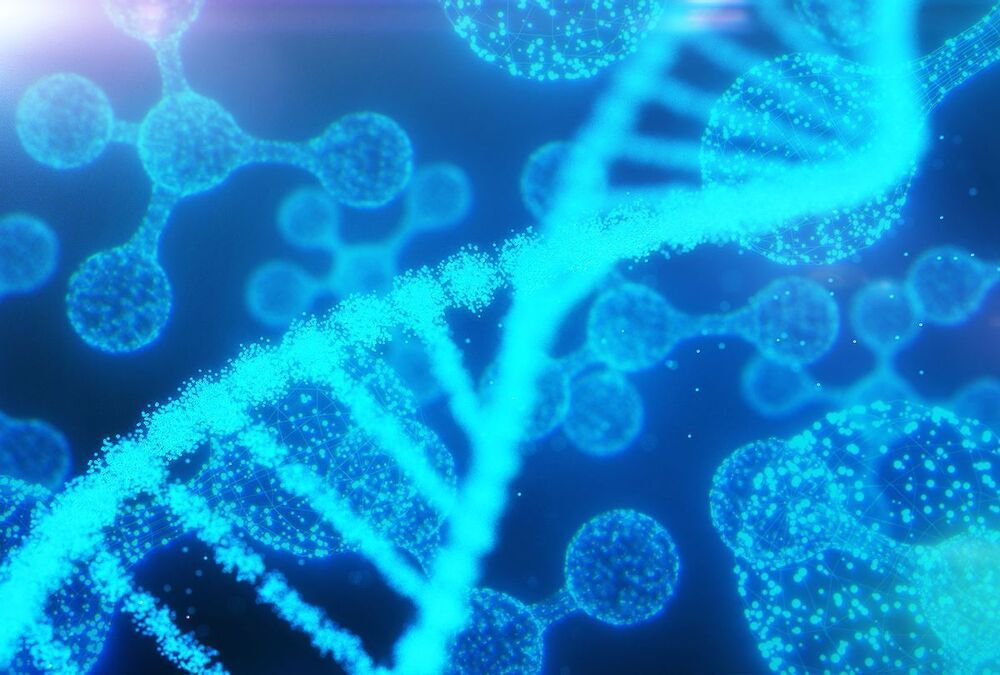

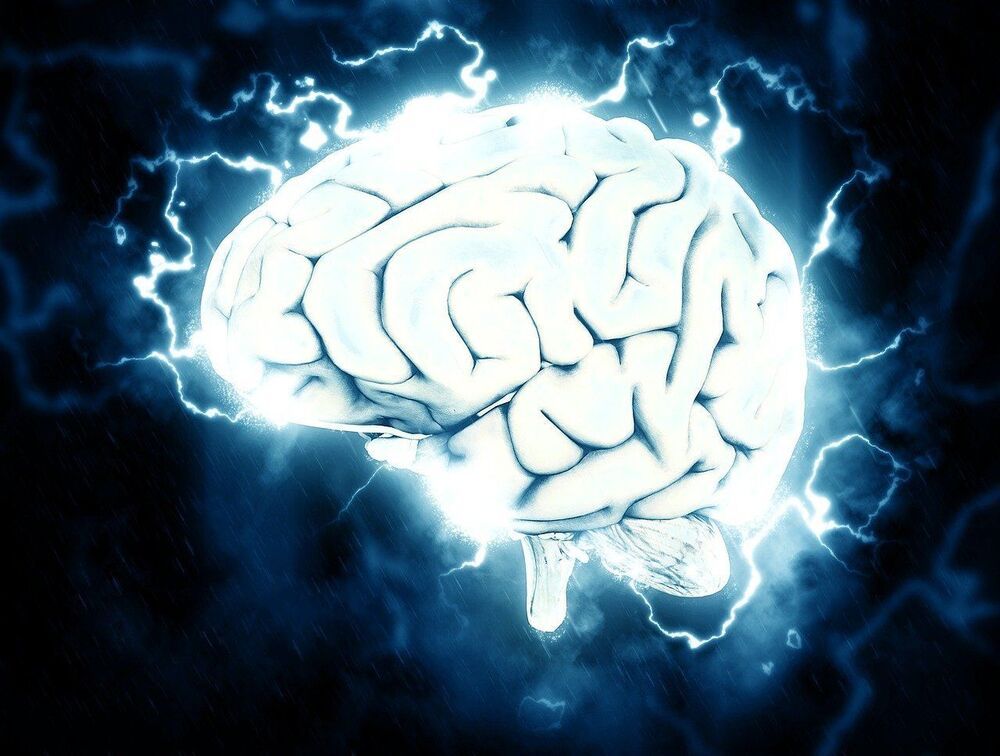
Using high-powered imaging, the researchers were able to see, for the first time, that immune cells called microglia were not just removing damaged material after experimental seizures but actually appeared to be healing damaged neurons.
Summary: Microglia do not only remove damaged materials following a seizure, they also appear to heal damaged neurons.
Source: University of Virginia
University of Virginia School of Medicine researchers have discovered a previously unknown repair process in the brain that they hope could be harnessed and enhanced to treat seizure-related brain injuries.
Common seizure-preventing drugs do not work for approximately a third of epilepsy patients, so new and better treatments for such brain injuries are much needed. UVA’s discovery identifies a potential avenue, one inspired by the brain’s natural immune response.
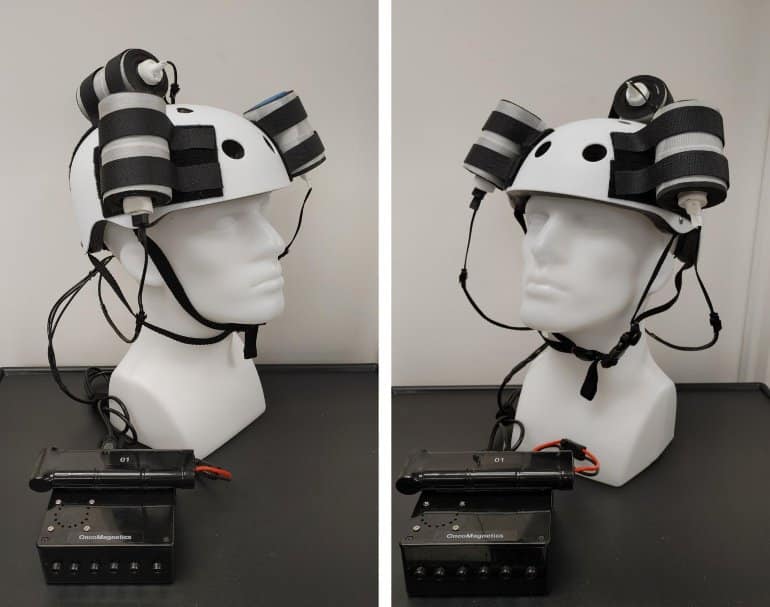
Summary: A novel helmet that generates a noninvasive oscillating magnetic field was able to reduce tumor mass by 31% in a glioblastoma brain cancer patient.
Source: Houston Methodist.
Houston Methodist Neurological Institute researchers from the department of neurosurgery shrunk a deadly glioblastoma tumor by more than a third using a helmet generating a noninvasive oscillating magnetic field that the patient wore on his head while administering the therapy in his own home. The 53-year-old patient died from an unrelated injury about a month into the treatment, but during that short time, 31% of the tumor mass disappeared. The autopsy of his brain confirmed the rapid response to the treatment.
Good day to you all.
Sirtuins are once again, making headlines. From a longer lifespan, again, through to helping old and dormant hair follicles to grow new hair, and of course a discourse between certain personalities on twitter, they continue to stimulate the interest and promise so much…
So I have decided to follow up my last sirtuins video with this one, Sirtuins revisited.
Here I look at them all from 1 to 7, to see what is being claimed for each one, and then I look at all the ways we can try to bring them all up to optimum so that we can live long, healthy lives, free from the maladies of old age.
I look at lifestyle interventions from exercise, saunas, cold therapies and more, through to diet choices and then finally on to supplements that are available to boost them all further.
So I hope you find it of use and enjoyable, and have a great weekend.
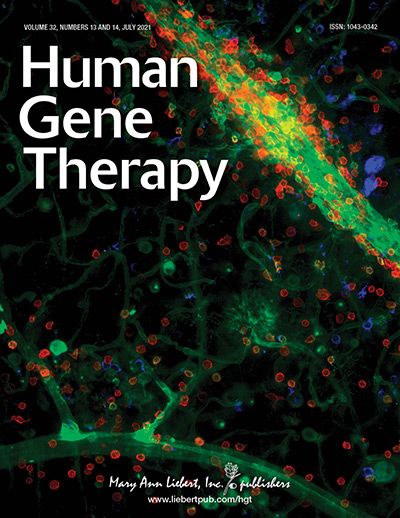
The severe acute respiratory syndrome coronavirus 2 (SARS-CoV-2) began in December 2019 and rapidly spread to other provinces in China as well as other countries. In this study, 262 patients diagnosed with moderate to severe SARS-CoV-2 pneumonia in Wuhan, China, were analyzed. Data were compared between survivors and nonsurvivors. Of all the 262 patients, 23 (8.8%) patients died and 239 (91.2%) were discharged. The median age was 63.5 years and 46.9% of patients were male. The main complaints were fever (83.6%), cough (63.4%), and fatigue (49.2%) in the surviving group, while there were more complaints of dyspnea (39.1%) and shortness of breath (56.5%) in the nonsurviving group. The main comorbidities were hypertension (35.5%), diabetes mellitus (16.4%), and coronary artery disease (9.9%). Morbidity is higher in elderly patients with more comorbidities. Patients were mainly treated with nasal cannula (93.9%), while the nonsurviving group received more invasive mechanical ventilation (39.1%). Arbidol (80.9%), ribavirin (36.6%), oseltamivir (38.9%), interferon (16.4%), and ganciclovir (14.5%) were used for the antiviral treatment. In the nonsurviving group, the number of white blood cells (WBC) was significantly increased and lymphocytes were decreased, and lymphopenia was more common. The levels of aspartate transaminase (AST), brain natriuretic peptide (BNP), creatine kinase isoenzyme MB (CK-MB), lactate dehydrogenase (LDH), and C-reactive protein (CRP) were also significantly increased in the nonsurviving group. The adjusted hazard ratios (HRs) for association of known variables for all-cause mortality due to the coronavirus disease 2019 were 2.467 (95% confidence interval[CI], 1.007−6.044; p = 0.048) for shortness of breath and 1.025 (95% CI, 1.001−1.049; p = 0.042) for AST. Elderly patients with more comorbidities and complaints of dyspnea and shortness of breath had increased risk of death. Patients with lymphopenia and high levels of WBC, AST, BNP, CK-MB, LDH, and CRP may be more likely to deteriorate.
Human Gene Therapy.
Neuroscientists removed fear from rats by inactivating amygdala — brain region mediating fear.
#Neuroscience #Brain #YuriNeuro #Neurobiology #Amygdala.
Timecodes:
0:00-Introduction.
0:17-Amygdala role in fear regulation.
0:45-Difficulties in exploring prey-predator interaction.
1:02-Lego robot to simulate a predator. Robogator (LEGO Mindstorms robot)
1:53-Fear response before the amygdala inactivation.
2:33-Fear response aftert the amygdala inactivation.
3:59-Amygdala is one of the key regions of the fear regulation.
4:50 — Human-based experiments on the electrical stimulation of amygdala.
6:01-Future prospects. Optogenetics.
6:34-Share your ideas and emotions in the comments.
In this video I review a scientific neuroscience publication :“Amygdala regulates risk of predation in rats foraging in a dynamic fear environment” from University of Washington and Korea University, Seoul. The scientific paper addresses the mechanism of fear regulation in rats. Neuroscientists inactivated neurons of the brain region regulating fear — amygdala. In order to inactivate amygdala neurons neurobiologists applied GABAA receptor agonist muscimol. In this way neuroscientists made the rat fearless. Neurobiologists simulated fear enviroment by using lego robot — Robogator (LEGO Mindstorms robot) programmed to surge toward the animal as it emerges from the nesting area in search of food.
Neuroscientists also increased the activity of amygdala neurons by applying GABAA receptor antagonist bicuculline methiodide. In this way neuroscience researchers increased the fear response of the laboratory rodent.
Similar role of amygdala in fear regulation was demonstrated for humans. For instance, in 2007 neuro researchers from Universite de Provence from France in their paper :” Emotion induction after direct intracerebral stimulations of human amygdala ” electrically stimulated amygdala and could induce negative emotions that were either verbally self-reported by a participant or measured by physiological markers such as skin conductance.

Mitochondrial Quality Control (Mitophagy), CNS Disorders, and Aging — Dr. Spring Behrouz, Ph.D., CEO, Vincere Biosciences Inc. / CEO, Neuroinitiative LLC.
Dr. Bahareh (Spring) Behrouz, PhD, is the CEO of Vincere Biosciences Inc (https://vincerebio.com/), a biotech company focused on developing novel, small molecule therapeutics targeting mitochondrial pathways and the improvement of mitochondrial quality.
Dr. Behrouz is also the CEO of NeuroInitiative, LLC (https://www.neuroinitiative.com/), a computational biology company she co-founded in 2014, which develops simulations of disease using their patented software platform. A core focus of her research at NeuroInitiative is on the elucidation of complex, converging pathways that contribute to the pathogenesis of Parkinson’s disease (PD), a neuro-degenerative brain disorder which dramatically effects movement, which nearly one million people in the U.S. are living with, and 10 million patients worldwide.
Dr. Behrouz received her graduate training at Michigan State University in the laboratory of Dr. John Goudreau and studied differential susceptibility of dopaminergic neuron sub-types in models of PD. She completed her post-doctoral training in the laboratory of Dr. Matthew Farrer at the Mayo Clinic in Jacksonville, where she primarily focused on in-vivo and primary culture models of LRRK2-mediated pathogenesis and was part of the team that discovered a new pathogenic mutation in VPS35.

Scientists at Cambridge and Leeds have successfully reversed age-related memory loss in mice and say their discovery could lead to the development of treatments to prevent memory loss in people as they age.
In a study published today in Molecular Psychiatry, the team show that changes in the extracellular matrix of the brain — ‘scaffolding’ around nerve cells—lead to loss of memory with aging, but that it is possible to reverse these using genetic treatments.
Recent evidence has emerged of the role of perineuronal nets (PNNs) in neuroplasticity—the ability of the brain to learn and adapt—and to make memories. PNNs are cartilage-like structures that mostly surround inhibitory neurons in the brain. Their main function is to control the level of plasticity in the brain. They appear at around five years old in humans, and turn off the period of enhanced plasticity during which the connections in the brain are optimized. Then, plasticity is partially turned off, making the brain more efficient but less plastic.
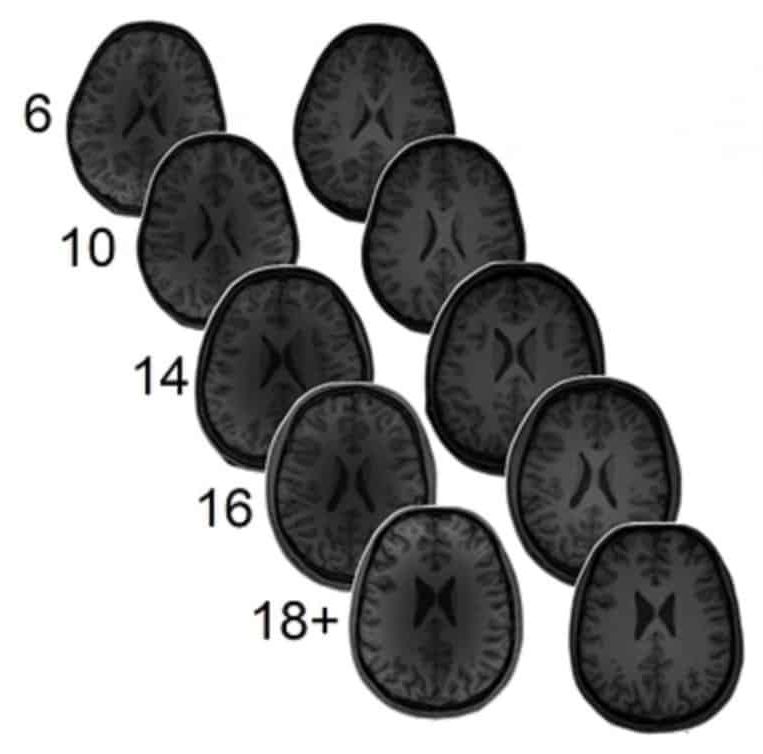
Summary: A new study found a person’s math ability was linked to levels of GABA and glutamate in the brain. In children, greater math fluency was associated with higher GABA levels in the left intraparietal sulcus, while lower levels of GABA were linked to math ability in adults. The reverse was true for glutamate in both children and adults.
Source: PLOS
The neurotransmitters GABA and glutamate have complementary roles — GABA inhibits neurons, while glutamate makes them more active.